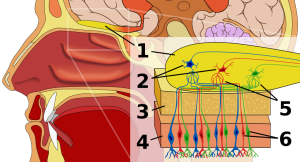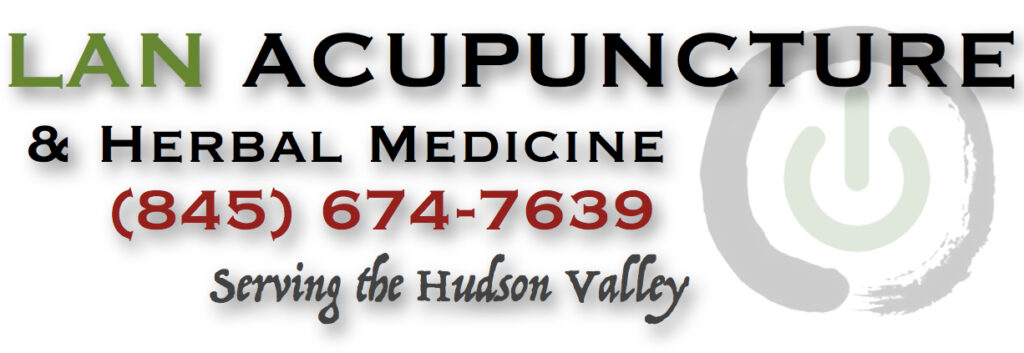[retweet][facebook]
Acupuncture alleviates impairment and dysfunction of the sense of smell, dysosmia. Tianjin University of Traditional Chinese Medicine researchers conducted an acupuncture clinical trial of ten patients with dysosmia. Acupuncture achieved a total effective rate of 90%. Two patients completely recovered, three patients achieved excellent clinical improvements, four patients achieved significant clinical improvements, and one patient demonstrated no signs of improvement. The results indicate that acupuncture restores olfaction.
 The acupuncture treatments were applied using a semi-protocolized acupuncture point prescription. The primary acupuncture points were applied to all patients and secondary acupuncture points were applied based on differential diagnostics. Patients were needled with 0.25 x 40 mm Hua Tuo brand acupuncture needles. Mild reinforcing and reducing manual acupuncture techniques were applied to elicit deqi. Manual acupuncture was applied twice per acupuncture session. Total needle retention time was thirty minutes per acupuncture session. Acupuncture was applied once per day for seven consecutive days followed by a one day break from treatments. This process was performed three times for a total of twenty-one acupuncture treatments.
The acupuncture treatments were applied using a semi-protocolized acupuncture point prescription. The primary acupuncture points were applied to all patients and secondary acupuncture points were applied based on differential diagnostics. Patients were needled with 0.25 x 40 mm Hua Tuo brand acupuncture needles. Mild reinforcing and reducing manual acupuncture techniques were applied to elicit deqi. Manual acupuncture was applied twice per acupuncture session. Total needle retention time was thirty minutes per acupuncture session. Acupuncture was applied once per day for seven consecutive days followed by a one day break from treatments. This process was performed three times for a total of twenty-one acupuncture treatments.
Manual acupuncture techniques were applied to the needles. Total needle retention time was thirty minutes. This trial specifically tested for intractable dysosmia that is unresponsive to biomedical intervention. All patients in the study tried biomedical treatments, without improvement, prior to enrollment in the clinical trial.
Both clinical trials indicate that acupuncture is effective for the treatment of dysosmia. Scalp acupuncture and local acupuncture points were used in both trials. In addition, manual acupuncture techniques were applied in both trials and the needle retention time was thirty minutes. Given the consistent results, acupuncture is indicated for the treatment of dysosmia and further research is warranted.
Tanaka et al. tried something different in their investigation. The researchers tested the efficacy of auricular acupuncture on olfactory capabilities. The auricular lung acupoint was tested on twenty-three healthy volunteers in a single blinded controlled investigation. The researchers note that the lung point was chosen, in part, due to its innervation by the auricular branch of the vagus nerve. The scent of two odiferous substances (ß-Phenyl ethyl alcohol, methyl cyclopentenolone) were used to measure the modulation of olfactory thresholds by acupuncture. Acupuncture successfully downregulated olfactory recognition thresholds and increased olfactory sensitivity.
Excerpt from:
